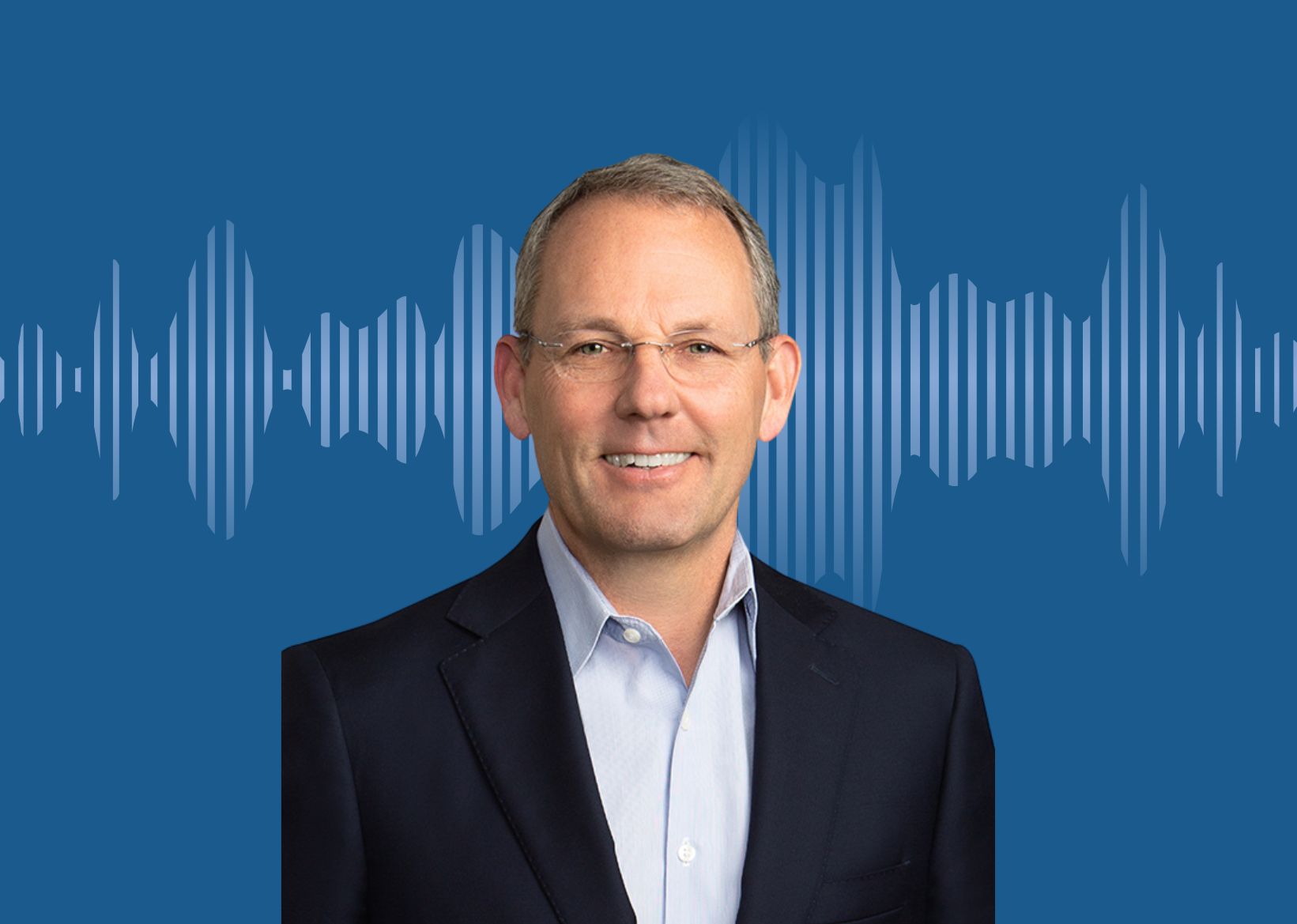Chris Wallis, CEO and CIO at Vaughan Nelson, discusses the CPI release, the recent spike in volatility and returning to balance, and assessing external risk factors.
August 14th, 2024
Also find us on
Lightly edited transcript
Dan: Welcome to the Vaughan Nelson podcast. With me today is CEO and CIO, Chris Wallis. Welcome, Chris.
Chris Wallis: It’s great to be here.
Dan: All right, Chris, let’s talk CPI, CPI data that got released out today and looked like it was pretty much in line with expectations and with that, the market seems to be really hyper focused on CPI, especially after the July release that triggered a fairly major sector rotation inside the equity market. How important is CPI for the equity market and should investors remain focused on the underlying inflation trends as they consider changes in their portfolio?
Chris Wallis: Yeah, I think there’s too much focus on CPI. I mean, we’re trying to carry it out two decimal places to decide on what the trend is or we’re taking these discrete periods, whether it’s two months and trying to annualize it or for the last four weeks, let’s annualize that. Look, inflation is not a headwind right now and it hasn’t been for some time. And what I think really triggered the lower rates was a slowdown in some of the employment statistics and then weakness in economic activity. So as we’ve said for some time, inflation is not going to rapidly reach the 2% level. It may firm a little bit, but it’s not a headwind to secure to equity markets moving higher because it’s not going to reaccelerate either.
So the hyper focus on it, I think investors are just getting a little bit too carried away. The most important thing for equities right now is health of economic growth and health of employment. So growth is going to be infinitely more important over the next four quarters than inflation is. So as an investor, even if you’re trying to make the decision between fixed income and equities or even within subsectors high yield versus investment grade, forget inflation. It’s just not going to be a material shift either way and just focus on the health of underlying growth in whatever area you’re investing in.
Dan: And then just I guess playing off of that a bit, looking at the overall health of the market over the last couple of weeks, we saw a fairly significant spike involved and subsequently big sell off global equity market. And then we saw some stability fairly shortly thereafter, we saw some return of some modest risk appetite that’s come back to the equity markets. So just in your opinion, as a market return to a level of balance that should further prevent dislocations over the near term.
Chris Wallis: It’s hard to say. And the reason we’ve talked about our underlying theme for the last several years, and I think this is going to continue for several years, is the economies and capital markets are out of balance. And so we’re trying to become back in balance. And while people want to call it the yen carry trade, there’s a lot of things that kind of led into that correction. One, the market was just entirely too one-sided and kind of crowded in. And the reality is the BOJ is out of balance. They need inflation in order to inflate away some of their debt, but at the same time, they can’t handle kind of a yen-derived or yen-declining inflation. And so they needed to normalize interest rates and a 25 basis point interest rate increase brought real havoc to equity markets. And that’s a sign, just like the guilt issue that we saw previously, is a sign that the currency system and capital flows are significantly out of balance.
And so while I think we may be at a temporary element of stability, it’s not permanent. And so I think it was a precursor and if additional actions are taken by the BOJ, we should expect additional volatility. Now over the short term, if you want to try to break down what’s happened, there’s a dispersion trade that’s likely been materially unwound. There’s also likely some fairly significant losses within financial institutions within Japan and maybe behind the scenes they’re trying to figure out how to plug some of those holes. But the other big trade or crowded trade out there besides the dispersion trade was the short vol trade. And I don’t think we unwound that at all during this. In fact, I think we may have increased it. So is there a chance if we get another vol event, be it for geopolitical reasons or be it for market structure reasons, do we need to unwind that short vol trade that may become even more crowded than it was prior to the volatility two weeks ago, perhaps.
But we won’t know that until it occurs. But I think the important thing for investors is to understand the dislocations we saw were because of the lack of balance within capital markets, capital flows, and growth algorithms in general. And this is going to be with us for several years because we’re going to see shifts in currency, structures and markets and flows and capital markets and flows and commodity markets and flows. And when that happens to a certain extent, wherever capital is, it’s going to sell those securities and move elsewhere and we’re going to get a different set of leadership. So I just think it’s a symptom of the regime we’re in and we’re going to be in probably through the rest of the decade.
Dan: And as you’re talking about leadership and some other things that we might be monitoring, what are some of those most important factors that you’re eyeballing because that’s either where we’re going to dial up or start dialing down risk in equity portfolio?
Chris Wallis: Yeah, I think it’s really hard for equity investors to quote position for these events or to look and say, “Hey, the Fed’s going to cut rates, therefore I’m going to go get long beneficiary of rates.” Because quite frankly, I think for the most part, the market’s already cut rates. And then two, I think because of the structural issues, we’re not going to see lower rates necessarily translate into lower borrowing costs in the areas we needed as an example. We may cut rates, but we may not see mortgage rates decline at all because there’s real problems within the mortgage origination space and within credit availability for mortgage originators. So they just quite frankly can’t pass lower rates on to home buyers. So what I’m really focused on is what’s happening at the company and industry level with CapEx. So will that translate into future growth? There are very large portions of the global economy that I think are going to be under duress, and there’s a lot of excess capacity that’s been built up in the auto space and auto supply chains.
There’s a lot of excess capacity that has been built up in renewables and in renewable fuels. And that’s going to translate not just into those energy transition areas, but it’s also going to transition probably into the agriculture sector. And so we’re going to see areas that really struggle to generate earnings growth and maintain margins over the next 12 months, for sure. But it could be even longer than that, and I’m going to look to see if that spreads. Also, for the first time I’m going to pay attention to the election. I usually don’t think elections matter. I think this one is because I think we got some pretty material policy choices to make in 2025 that’s going to impact valuations, whether that’s tax policy, whether that’s continuation of deficit spending, or quite frankly, where we continue the deficit spending. So I do think it’s going to get a lot more important to understand the underlying drivers for earnings growth because they may be changing on the margin, and that means investors are going to have to make security level decisions and not sector and asset class level decisions.
Dan: Good. All right. Great. Well, that looks like a good place to stop for today. So thank you very much, Chris, and we’ll catch you soon.
Chris Wallis: Sounds good.
This publication (the material) has been prepared and distributed by Natixis Investment Managers Australia Pty Limited AFSL 246830 for the Vaughan Nelson Global Equity SMID Fund (the “Fund”) and may include information provided by third parties. The information in this report is provided for general information purposes only and does not take into account the investment objectives, financial situation or needs of any person. Investors Mutual Limited AFSL 229988 is the responsible entity of the unquoted and quoted class units of the Fund. Vaughan Nelson Investment Management, L.P. is the investment manager. This information should not be relied upon in determining whether to invest or continue to invest in the Fund and is not a recommendation to buy, sell or hold any financial product, security or other instrument. In deciding whether to acquire or continue to hold an investment in the Fund, an investor should consider the current PDS and Target Market Determination for the appropriate class of the Fund, available on the website www.VaughanNelson.com.au or by contacting us on 1300 219 207. Past performance is not a reliable indicator of future performance. There is no guarantee of the performance of the Fund or any particular rate of return. The material may not be reproduced, distributed or published, in whole or in part, without the prior written consent of Natixis Investment Managers Australia Pty Limited and IML.
Stay up to date
with Vaughan Nelson
Register to receive regular performance updates and regular insights from the Vaughan Nelson investment team, featured in the Natixis Investment Managers Expert Collective newsletter.
Vaughan Nelson Investment Management marketing in Australia is distributed by Natixis Investment Managers, a related entity. Your subscriber details are being collected on behalf of Vaughan Nelson Investment Management, and Investors Mutual Limited (the RE for Fund) by Natixis Investment Managers Australia. Please refer to our Privacy Policy. Natixis Investment Managers Australia Pty Limited (ABN 60 088 786 289) (AFSL No. 246830) is authorised to provide financial services to wholesale clients and to provide only general financial product advice to retail clients.




